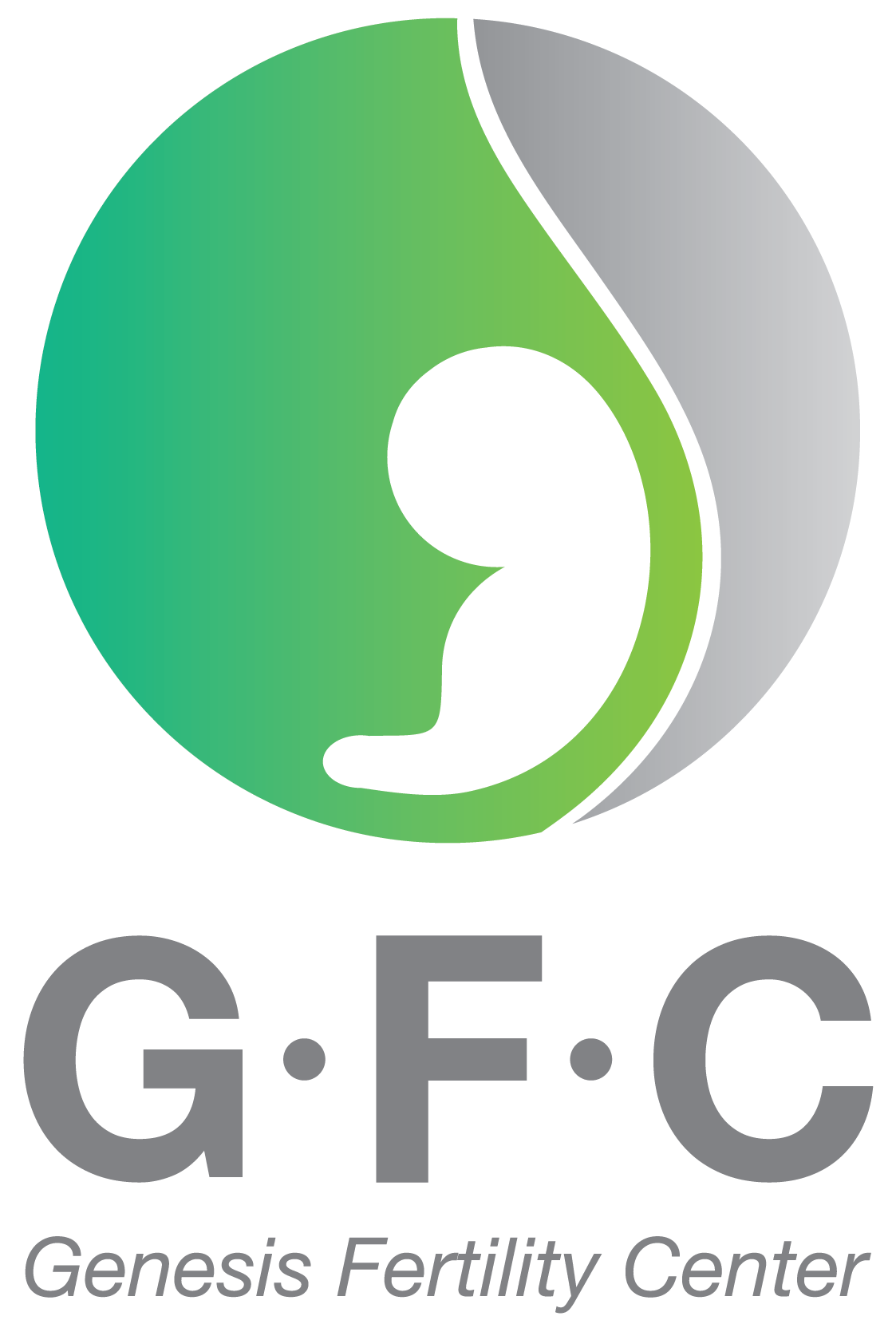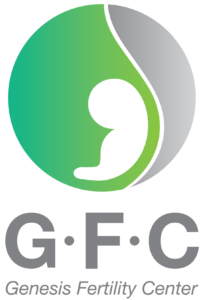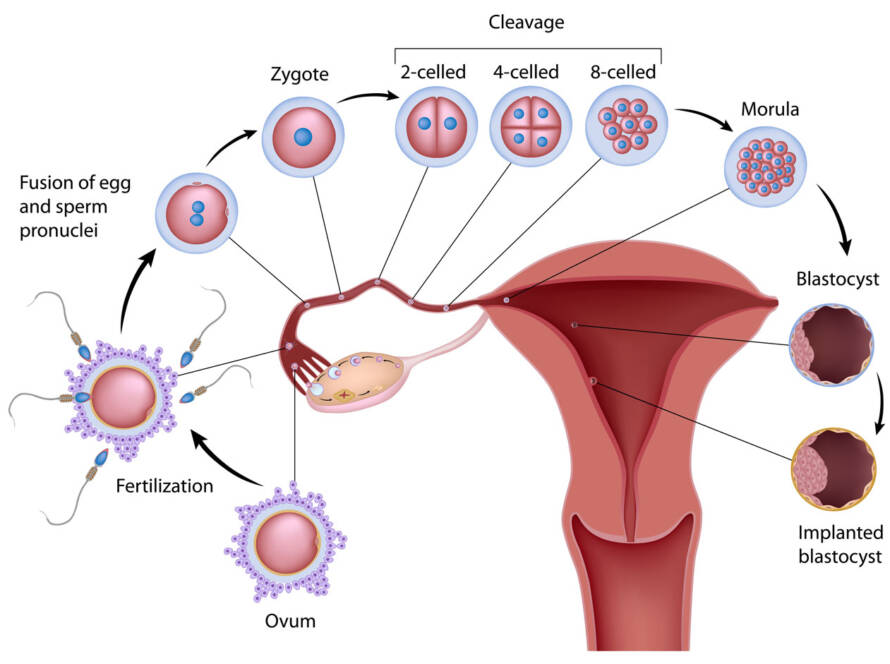NGS chromosomal screening is a helpful tool for couples experiencing infertility who wish to choose the gender of their child through ICSI.
Treating infertility with assisted reproductive technology to increase chances of pregnancy is a common approach for couples struggling with infertility and hoping to conceive. Frequently, couples facing difficulty conceiving will ask whether assisted reproductive technologies, such as in vitro fertilization (IVF) and intracytoplasmic sperm injection (ICSI), can be used to select the gender of their child. As the rate of infertility in Thailand continues to increase and many families seek to have only one child, the desire to select the gender of a child becomes a common hope. Gender selection is just one of many desires among those who have difficulty conceiving and wish to have a child.
The reasons why couples struggling with infertility and hoping to have a child may desire gender selection are varied. Some may stem from cultural beliefs surrounding ancestry, while others may be due to certain genetic disorders that can be passed down to children of a specific gender. For instance, genetic disorders such as anhidrotic ectodermal dysplasia, G6PD deficiency, and Down syndrome can be inherited from a parent or family member and passed down to male children with a higher risk, while female children may not be affected by these conditions.
Prior to undergoing the process of sex selection through IVF or ICSI, couples who experience difficulty conceiving and wish to have a child should understand the factors that determine the sex of a baby. When the egg of the female partner contains XX chromosomes and the sperm of the male partner contains XY chromosomes, there are two types of sperm in the seminal fluid, X (female) and Y (male). However, the resulting chromosome will depend on which sperm successfully fertilizes the egg. If the X sperm successfully fertilizes the egg, the resulting chromosome will be XX, resulting in a female baby. On the other hand, if the Y sperm successfully fertilizes the egg, the resulting chromosome will be XY, resulting in a male baby.
Can gender selection be done through ICSI?
This is a matter that many couples wonder about. In the process of performing ICSI to conceive a child, the strongest sperm is selected by using a microscope to inject it directly into the egg with a small needle. After fertilization, the embryo is cultured in a special nutrient solution in a laboratory. Once it reaches an appropriate stage of development, it is transferred into the uterus to achieve pregnancy.
For couples who decide to treat infertility with ICSI, they cannot actually choose the sex of their child because it involves selecting the embryo that will be implanted into the uterus. Doctors will consider the embryo with the most normal and complete chromosomes, without considering its sex. Therefore, ICSI cannot be used to select the sex of the child. Additionally, according to the Medical Council’s announcement on the standards for assisted reproductive technology services, there are regulations regarding the selection of the sex of the child in such cases.
Couples who have difficulty conceiving and wish to have a child of a specific gender can determine the gender of the embryo through genetic testing prior to transfer to the uterus. However, this can only be done for the purpose of diagnosing genetic disorders and must not be performed for the purpose of gender selection or determination. Healthcare providers and physicians must receive certification from the Royal Thai College of Obstetricians and Gynecologists before performing such testing. If couples who undergo ICSI wish to determine the gender of the embryo through NGS chromosomal testing prior to transfer to the uterus, this is permissible. However, this only provides information about the gender of the embryo and does not guarantee the selection of a specific gender. Gender selection for non-medical reasons is currently not allowed in Thailand and is in violation of the country’s laws.
What is NGS (Next Generation Sequencing)?
NGS or Next Generation Sequencing is a type of genomic analysis tool that can analyze and read the nucleotide sequence or genetic code in DNA from all chromosomes. This technique has the highest resolution and accuracy of genetic analysis currently available because the NGS tool reads the genetic code directly, without using microarray-based fluorescent labeling.
Using NGS can identify abnormalities in all chromosomes and detect certain types of chromosomal mutations that cannot be detected by other techniques. Additionally, NGS can analyze genetic codes that are suspected to cause inherited diseases transmitted from parents to offspring.
In summary, NGS is a technology that can detect chromosomal abnormalities down to the base pair level, which is the smallest component of chromosomes. This helps to reduce problems such as fetal non-implantation, miscarriage in the first trimester, or abnormal development of fetuses due to chromosomal abnormalities. NGS can comprehensively detect abnormalities in all 24 chromosomes in a single test with high accuracy and the lowest error rate compared to other techniques.
What does NGS detect?
In the process of ICSI and IVF, doctors often recommend using the NGS technique or testing the chromosomes of the embryo during the process, because it can detect abnormalities in all 23 pairs of chromosomes, reducing the risk of Down syndrome, increasing the chances of successful pregnancy, reducing the likelihood of miscarriage, and importantly, identifying the gender of the baby.
Normally, humans have 46 chromosomes or 23 pairs. If there are abnormalities, such as missing or extra chromosomes, it can result in developmental disabilities in various systems of the baby. Down syndrome is a common condition that results from an extra chromosome 21, causing intellectual disabilities and multiple physical disabilities.
In cases where there is an excess or deficiency of chromosome pairs 13 or 18, it is a group of conditions in which fetuses in utero will have severe disabilities in multiple systems, and most newborns typically have a short life expectancy. In the early stages of pregnancy, the presence of chromosomal abnormalities often leads to a higher rate of miscarriage compared to normal fetuses.
A
ditionally, genetic testing can diagnose single gene mutations in the embryo prior to implantation to detect genetic disorders caused by abnormal single genes. This type of genetic abnormality can be passed down to offspring or can occur spontaneously during gamete formation. Single gene mutations are often a contributing factor to various conditions, including abnormal fetuses at birth and early mortality.
Who should undergo NGS testing:
- Women over 35 years old who are starting to have difficulty getting pregnant.
- Women who have a history of multiple miscarriages without known cause.
- Individuals whose family members have a history of inherited genetic disorders
- Individuals who have experienced more than two unsuccessful IVF/ICSI attempts.
Benefits of pre-implantation genetic diagnosis:
– Reduce the rate of termination due to abnormal embryos and reduce the risk of miscarriage.
– Increase the chance of successful pregnancy.
– Identify any genetic abnormalities in the embryo before implantation.
– Enable the selection of healthy embryos.
– Reduce the risk of passing on inherited genetic disorders to future generations.
Couples who are struggling with infertility and seeking to conceive through ICSI and wish to undergo Next Generation Sequencing (NGS) for chromosome analysis can seek the services of Genesis Fertility Center (GFC) Clinic. We offer services that can increase the chances of achieving pregnancy up to 70% and have a better chance of success than IVF. We also provide specialized medical consultation for all cases, including the process of embryonic development and nurturing by experienced scientists. The lab facilities for embryonic development are of international standard and are maintained with surgical-grade cleanliness. In addition, advanced technologies such as Eeva and Geri+ incubators are utilized to increase the chances of success. If you require Intra-cytoplasmic sperm injection (ICSI) and Next Generation Sequencing (NGS) for chromosomal testing, you may seek advice and consultation from Genesis Fertility Center (GFC), a medical center that provides comprehensive services for couples experiencing infertility, at…
Call Center 097-484-5335
Monday–Friday: 9.00–20.00 Saturday–Sunday: 8.00–20.00.



